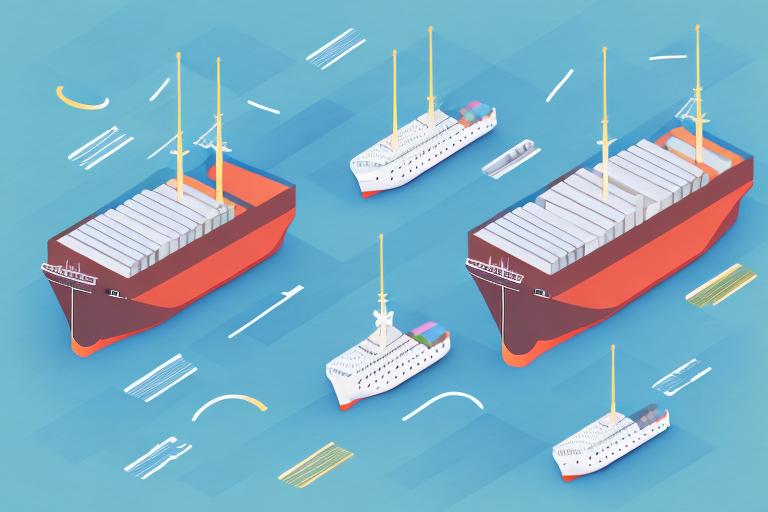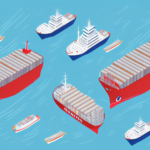What Is Carrier in Shipping? Understanding the Basics
When it comes to the shipping industry, carriers play a crucial role in transporting goods from one location to another. In basic terms, a carrier is a company that provides transportation services for cargo, whether it be by land, sea, or air. Carriers can be classified into different types, and they may specialize in certain types of cargo or transportation modes depending on their expertise and resources. In this article, we will delve deeper into the concept of carriers in shipping, including their role, types, operations, challenges, liability, services, rates, regulations, and impact on the environment.
Different Types of Carriers in Shipping
There are several types of carriers in shipping, each with its own characteristics and capabilities. Some of the most common types include:
- Common carriers
- Private carriers
- Dedicated carriers
- Specialized carriers
It is important to choose the right type of carrier for your shipping needs. Common carriers are a good option for small businesses or individuals who need to transport goods regularly, while private carriers may be more cost-effective for larger companies with their own fleet of vehicles. Dedicated carriers are ideal for businesses that require a high level of reliability and consistency in their shipping operations, while specialized carriers are necessary for transporting goods that require special handling or equipment.
How Does a Carrier Operate in the Shipping Industry?
A carrier’s operations in the shipping industry can vary depending on its size, scope, and specialization. However, there are some fundamental steps that most carriers follow in transporting goods:
- Receiving and loading cargo
- Transporting cargo to the destination
- Unloading and delivering cargo
Carriers also play a crucial role in ensuring the safety and security of the cargo they transport. They must comply with various regulations and standards set by national and international authorities, such as the International Maritime Organization (IMO) and the International Air Transport Association (IATA). Carriers must also implement measures to prevent theft, damage, or loss of the cargo, such as using tracking systems, security seals, and insurance policies. Additionally, carriers may offer value-added services to their customers, such as customs clearance, warehousing, and packaging, to enhance the efficiency and convenience of the shipping process.
The Importance of Carriers in Global Trade
Carriers are essential players in the global trade market, as they facilitate the movement of goods between countries and continents. Without carriers, it would be difficult for businesses and consumers to access a wide range of products from different parts of the world. In addition, carriers contribute to economic growth and job creation in various regions, especially those that are major transportation hubs or seaports. Moreover, carriers help maintain international trade relations and cooperation through their adherence to trade laws and agreements.
One of the key benefits of carriers is their ability to transport goods quickly and efficiently. This is particularly important for perishable goods, such as fresh produce or pharmaceuticals, which require timely delivery to maintain their quality and effectiveness. Carriers also play a crucial role in emergency situations, such as natural disasters or humanitarian crises, by delivering essential supplies and aid to affected areas.
Furthermore, carriers are constantly innovating and improving their services to meet the changing needs of the global trade market. For example, many carriers are investing in eco-friendly technologies and practices to reduce their carbon footprint and promote sustainable trade. Others are developing new digital platforms and tools to streamline the shipping process and enhance transparency and security for customers.
Common Challenges Faced by Carriers in Shipping
Despite their importance, carriers face several challenges in the shipping industry that can impact their operations and profitability. One of the most significant challenges is fluctuating fuel prices, which can affect the carrier’s bottom line and pricing strategies. Another challenge is competition from other carriers, especially in crowded or oversaturated markets. Additionally, carriers may have to deal with infrastructure and logistics issues, such as congested ports, limited transportation routes, or customs and border regulations. In some cases, carriers may also face security threats or situations that jeopardize the safety of the cargo or personnel.
Carrier Liability and Insurance in Shipping
Carriers have a legal and financial responsibility to ensure the safe and timely delivery of the cargo entrusted to them. However, accidents, damages, and losses can still occur, which is why carriers often carry liability insurance to protect themselves and their customers. Carrier liability can depend on various factors, such as the type of cargo, the mode of transportation, and the terms of the shipping contract. In some cases, carriers may also offer additional insurance options or value-added services to give customers peace of mind and added protection.
How to Choose the Right Carrier for Your Business Needs
Choosing the right carrier for your business can be a daunting task, but it is crucial to ensure that your cargo is transported safely, efficiently, and cost-effectively. Some factors to consider when selecting a carrier include:
- Type of cargo
- Mode of transportation
- Shipping routes
- Reputation and reliability of the carrier
- Cost considerations
- Value-added services offered
Trends and Innovations in the Carrier Industry
The carrier industry is constantly evolving, driven by technological advancements, changing consumer demands, and global economic trends. Some of the latest trends and innovations in the carrier industry include:
- Eco-friendly technologies and practices
- Digital platforms and tools
- Automation and robotics
- Enhanced tracking and visibility features
The Future of Carriers in an Evolving Shipping Landscape
As the shipping industry continues to adapt to new challenges and opportunities, carriers are likely to play a pivotal role in shaping the future of global trade. Some experts predict that carriers will leverage technology and innovation to improve efficiency, reduce costs, and enhance customer experience. Others believe that carriers will need to adapt to changing consumer preferences and regulatory requirements, such as the growing demand for sustainable transportation solutions. Regardless of the future direction of carriers in shipping, it is evident that they will remain a critical component of the logistics value chain.
Carrier vs Freight Forwarder: What’s the Difference?
While carriers and freight forwarders are both involved in the transportation of goods, they have distinct roles and responsibilities. A carrier is primarily responsible for physically moving the cargo from one location to another, while a freight forwarder acts as an intermediary between the shipper and the carrier, helping to manage the logistics and documentation of the shipment. Freight forwarders may also offer additional services, such as warehousing, customs clearance, and insurance. Depending on your needs and preferences, you may choose to work with a carrier, a freight forwarder, or both.
Carrier Services: What Do They Offer and How Can They Benefit You?
Carriers offer a wide range of services to meet the diverse needs of their customers. Some of the most common carrier services include:
- Transportation
- Customs clearance
- Warehousing
- Packaging
- Insurance
By leveraging carrier services, businesses and individuals can benefit from streamlined logistics, reduced costs, and improved supply chain efficiency. Working with a reputable and experienced carrier can also help mitigate the risks and challenges associated with shipping.
Understanding Carrier Rates and Charges in Shipping
Carrier rates and charges can vary depending on several factors, such as distance, weight, size, mode of transportation, and service level. Some common types of carrier rates include:
- Flat rates
- Variable rates
- Priority rates
- Discounted rates
It is important to understand carrier rates and charges when selecting a carrier, as they can impact the overall cost and profitability of your shipment. Carriers may also have various payment and billing options available, such as prepaid, collect, or third-party billing.
Regulatory Compliance Requirements for Carriers
Carriers are subject to various national and international regulations related to safety, security, and environmental protection. Some of the most commonly applied regulations for carriers in shipping include:
- International Maritime Organization (IMO) regulations
- International Air Transport Association (IATA) standards
- Environmental Protection Agency (EPA) guidelines
Carriers must adhere to these regulations to ensure compliance, avoid penalties, and maintain their reputation and credibility.
Environmental Impact of Carriers on the Shipping Industry
The shipping industry is a significant contributor to global greenhouse gas emissions and environmental degradation, with carriers playing a substantial role in this impact. However, carriers are also increasingly exploring ways to reduce their environmental footprint and promote sustainable practices. Some of the initiatives and strategies being adopted by carriers include:
- Using cleaner fuels
- Investing in energy-efficient technologies
- Implementing waste reduction programs
- Enhancing recycling efforts
By prioritizing sustainability, carriers can not only minimize their negative impact on the environment but also improve their reputation, customer loyalty, and competitive advantage.
In conclusion, carriers are an essential aspect of the shipping industry, providing transportation services that facilitate global trade and support economic growth. By understanding the basics of carriers in shipping, their types, operations, challenges, liability, services, rates, regulations, and impact on the environment, businesses and individuals can make informed decisions when selecting a carrier, managing their logistics, and contributing to a sustainable future.




















